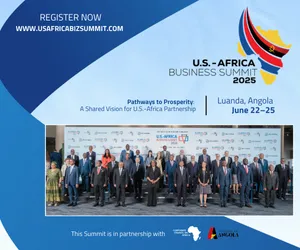Khartoum, the capital of Sudan, is not a place that features much in conversations about investing in Africa. Despite having a population of almost 40m, significant natural resources and Africa’s fifth-largest economy, the country attracted just $1bn of investment in 2016, down from an equally unimpressive high of $2bn in 2012.
For decades Sudan was known primarily for the long-running conflict between the north and the south of the country, which culminated in the 2011 secession of South Sudan. The country’s president, Omar al-Bashir, is wanted by the International Criminal Court for war crimes.
It is hardly the CV of a country ready for international investment, but things are changing. Last October the US lifted an economic embargo on the country after 20 years, citing improvements in combating terror and addressing human rights issues.
Since then Khartoum has been actively trying to shed its reputation as an international pariah. In March the government announced it would open its uranium industry to investment, and has been courting the likes of Russia to help develop the sector.
Since then the government has announced plans to issue a $1bn sukuk this year, quadruple trade with Turkey to $2bn, and boost ties with the Gulf states, including the UAE, one of its main economic partners. In March the country inked a $4bn deal with Qatar to revamp the Ottoman-era port of Suakin.
There is even talk of engaging with investors from the West, which has long had fraught relations with Sudan. The UK–Sudan Trade Forum was hosted in London last December, with the British government participating despite criticism from rights groups over Sudan’s human rights record.
Here too there have been signs that a shift is taking place in Khartoum. In a virtually unprecedented move President al-Bashir in April ordered the release of all of Sudan’s political prisoners, though there has been little detail on exactly how this would be implemented.
All of this leaves one thing beyond doubt – Khartoum is coming in from the cold, or at least trying to. It faces a long and rocky road ahead, not least around how to engage the international community while the country’s head of state is wanted for war crimes.
It is also not before time. The economy is struggling with inflation at more than 50%. In a bid to rein in spending the government cut wheat subsidies in January, resulting in bread prices doubling and deadly protests across the country.
It’s very early days for Sudan, and success is far from guaranteed, but the country is well worth watching in 2018, not least because of how unlikely the current trajectory seemed just 12 months ago.
Want to continue reading? Subscribe today.
You've read all your free articles for this month! Subscribe now to enjoy full access to our content.
Digital Monthly
£8.00 / month
Receive full unlimited access to our articles, opinions, podcasts and more.
Digital Yearly
£70.00 / year
Our best value offer - save £26 and gain access to all of our digital content for an entire year!

 Sign in with Google
Sign in with Google 





